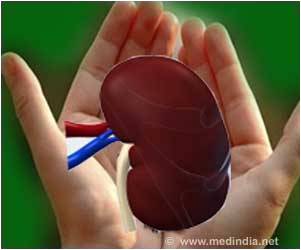Last year Sotaro Nakazawa died at the age of one. His father says two things killed him -- his heart disease and the fact he was born in Japan, which bans organ donations to those
Last year Sotaro Nakazawa died at the age of one. His father says two things killed him, his heart disease and the fact he was born in Japan, which bans organ donations to those younger that 15.
"If my son had been born and hospitalised in the United States, his name would have immediately been placed on the waiting list for organ recipients," Keiichiro Nakazawa said bitterly."I have no doubt he would have breezed through surgery and recovered."
Six months after the death of his child, Nakazawa is increasingly furious with a political system he says is too sluggish to change.
"I am angry," he told AFP in a recent interview.
"They said they would reform the law on organ transplants, but it has been neglected for more than 10 years. During that period, tens of thousands of children and adults waiting for transplants have died."
Four proposals to change the law are now being debated in Japan's parliament, where a vote next week may seal the fate of scores of children like Sotaro who are born every year with heart conditions.
Advertisement
The government adopted an Organ Transplant Law in 1997, but since then only 81 transplants have been carried out, compared to several thousand each year in the United States and several hundred annually in Europe.
Advertisement
There is no shortage of potential donors: some 10,000 people in Japan are declared "brain dead" every year, a state when all brain activity ends but the heart and lungs can continue to function through medical assistance.
But the concept of brain death remains controversial in Japan, where many religious groups argue that a person is deceased only when their heart has stopped beating and their lungs no longer function.
Japan has the toughest laws of any developed country for organ donations: in addition to the age limit, a potential donor must give written permission for the donation, and the family must also give their consent.
"In Japan, a patient with a heart disorder will be connected to an artificial heart for 400 days on average, compared to only 40 in the United States," said Taro Kono, a law maker who is pushing for reform.
"But in Japan, after 400 days the patient dies, while in America, if you wait just 40 days, you get a new heart and you live."
Those Japanese who can afford it go abroad for operations, many travelling to the US where a heart transplant costs between one million and 1.5 million dollars.
For the 50 or so Japanese children who await heart transplants every year, they have no option other than an overseas transplant, in surgeries often paid for by public donations.
For a kidney or liver transplant, many Japanese travel to China or the Philippines, where organ trafficking flourishes.
However, the World Health Organisation wants to put a stop to such practices, it issued the Declaration of Istanbul on Organ Trafficking and Transplant Tourism in 2008, and will request signatory nations in early 2010 to limit organ transplants to within their national boundaries.
Australia, Britain and Germany have already announced they will refuse Japanese patients seeking organ transplants.
The lawmaker Kono, who gave part of his liver to his father in 2002, has submitted an amendment seeking to scrap the age limit and the system of double consent, a plan based on a model enacted in other developed countries.
Kono said the system should be reversed and a deceased person should be considered a donor unless he or she has specifically refused in writing to have their organs harvested or unless their family strongly objects.
That change "would allow more scope for organ transplants in Japan and especially allow small children to receive organs from others," he said.
The other three proposals submitted to lawmakers seek to lower the minimum age of donors to 12 years, and to emphasise the definition of "brain death".
"In this country we'll need to start accepting the fact that brain death is the real term for death," said Tsutomu Saji, professor at Toho University First Department of Pediatrics School of Medicine.
Source-AFP
SRM









